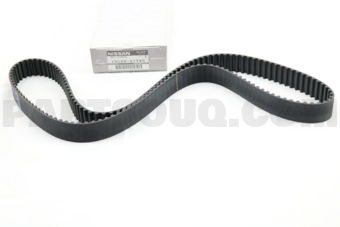1302881TX5 Nissan BELT-TIMING, Price: 29.59$, Weight: 0.435kg
| Make | Number | Name | Availability | Weight, kg | Ship in, Days | Price |
|---|---|---|---|---|---|---|
Nissan |
1302881TX5 |
BELT-TIMING |
18 |
0.435 |
2 |
29.59$ |
Substitutions
| Make | Number | Name | Availability | Weight, kg | Processing, days | Price | |
|---|---|---|---|---|---|---|---|
| Nissan |
BELT-TIMING
|
0 |
0.219
|
-
|
45.29$
|
Not Available |
Timing Belt: The Heartbeat of Your Engine ??
The timing belt is an essential component in your vehicle's engine system, effectively coordinating the movement between the crankshaft and camshaft. This synchronization is crucial for ensuring that the engine's valves open and close at the appropriate times during each cylinder's intake and exhaust strokes. Specifically designed for compatibility with Nissan models, the component ensures optimal engine performance and longevity.
Why You Need It ?
Without this vital belt, the engine's pistons would collide with the valves, resulting in catastrophic engine failure. It's the silent conductor, keeping everything in harmony while your engine operates. Investing in a high-quality belt ensures that your engine runs smoothly, efficiently, and reliably. Regular maintenance and timely replacement are key to preventing costly repairs down the road.
How It Works ⚙️
Made from durable rubber and featuring high-tensile fibers for strength, the timing belt grips the gears with precision. It continuously turns the camshaft(s) in time with the crankshaft, thanks to its teeth that lock into place with sprockets. This precision engineering ensures that the valves open and close in perfect time with the pistons, maximizing combustion and power output.
Consequences of a Broken Belt ?
Should the timing belt break, the results can be disastrous. The engine may seize, causing the pistons and valves to collide violently. This can result in bent valves, damaged pistons, and even a complete engine overhaul. To avoid these dire outcomes, it's critical to adhere to your vehicle manufacturer's recommended replacement intervals—typically between 60,000 to 100,000 miles.
Remember, regular inspections and timely replacements can save you from unforeseen engine troubles. This small yet powerful component is a critical investment in your car’s health and performance.
